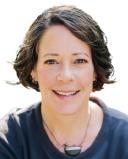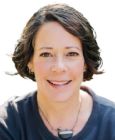Bullying
Oregon hosts conference for adults with ASD
Event recognizes the serious need for adult services.
Posted October 11, 2010
On Oct. 1, the Autism Society of Oregon (ASO) held its first conference focused specifically on adults with Autism Spectrum Disorder (ASD).
Two hundred and eighty people turned out for the event, called "Believe in the Possibilities."
ASO Executive Director Genevieve Athens said that 70 of attendees were adults on the spectrum.
"Very few conferences like this are happening around the country for adults with Autism Spectrum Disorder (ASD)," she said. "We were glad to see so many people with ASD attend, and hope that they felt a sense of community, concern of the issues they face and commitment to help improve their lives through direct support."
Lee Grossman, president and CEO of the national Autism Society and father of a young man with ASD, gave the keynote address, an inspired speech about the state of autism and the paramount need for national and transformational change in services for adults with disabilities.
"If there was ever a system that is broken or that is entirely and utterly useless, it is services for adults with disabilities," he said.
In addition, he said it must be understood that autism affects people on the spectrum, their siblings, their parents, and their grandparents.
"We have to start referring to autism as a whole family condition, because it affects everybody."
Grossman referenced familiar data - 1 in 91 children are affected by autism; 1.5 million Americans have ASD; 12.5 to 17 million Americans have a family member with ASD; it is the fastest growing disability in the country. Then he said, "Let's stop talking about the numbers. We know they are huge. Let's start helping people who are there."
Grossman emphasized that autism is treatable, everyone is employable, and that we know what needs to be done to help people adults with ASD achieve a high quality of life. He ended his speech saying that he hoped the next generation will simply accept autism as part of the human condition.
It was clear that everyone in attendance did.
After Grossman's speech, which was very well received, a young woman marched to the front of the ballroom and yelled at Grossman not to call her a tsunami, an epidemic, a problem, and stormed off.
The breakout sessions, which covered important topics like employment, housing, social connections, dating and sensory issues, were punctuated by occasional shouts and yips.
At an employment session, where some listened while rocking, tapping or sticking their fingers in their ears, someone's companion dog suddenly erupted in furious barking, and just as suddenly stopped.
None of this phased anybody. People on the spectrum and the people in their lives simply know that if you have ASD, you might respond differently than others will, and it doesn't have to be a big deal.
An afternoon panel of adults on the spectrum reminded me how much we can learn from each other.
Mary-Minn, a 40-something woman with bobbed hair, square glasses, and animated gestures, recounted a difficult employment history. In her adult life she'd had more than 35 jobs and had been fired from "at least 15 of them." She said she'd get stuck on details and she marveled that she had managed to struggle through five years as waitress. "It was me against the cooks," she said. "I could never make them go slow enough." But Mary-Minn was able to synthesize her failings into an understanding of what she was very good at - one-on-one job coaching.
Jonathan, with the long hair of the musician that he is, talked about getting his diagnosis as a teenager after a childhood of bullying. By then, he'd found solace in music and dropped out of high school to become a full-time blues musician. He said working in the entertainment industry forced him to overcome his social inhibitions.
"I push myself, all the time, to be uncomfortable," he said. Part of his job is responding to audience members after the show. He drew a laugh from the ballroom when he said, everybody, no matter how drunk they are, expects you to look them in the eye.
Elesia, a beautiful young woman with a brilliant smile, who has ASD and is also profoundly deaf, said people often tell her she doesn't look like someone with autism and deafness. She said she suggests they alter their perceptions of what autism and deafness should look like.
The one sure thing about ASD is that everyone is different. As she said of her self -advocacy group, "some of us are huggers, some are not, some are talkers, some are not." "If you've met one person on the spectrum," she said, "you've met one person on the spectrum."
The fourth panel participant, Jeremy, participated via DVD and sent a message that especially struck home with me. Though he has few verbal skills, Jeremy uses a computer to communicate and recently graduated from high school with a 3.5 GPA. He spoke about not being able to connect with people, lacking language, and the teacher who first believed he could.
Earlier this summer Athens asked if my sister would be interested in being on a panel, and I said no. Margaret does not talk very much, and would not have been able to participate in a discussion. But I'd also made the assumption that she wouldn't want to go at all, thinking she wouldn't get much out of it. If anything, this event reminded me not to jump to conclusions. It made me remember that my quiet sister is an extremely good listener, and although she might not be able to tell me what she'd heard, that was really beside the point.
Given the positive response from attendees I spoke with, one can hope that we will see more conferences for adults with ASD around the country.


